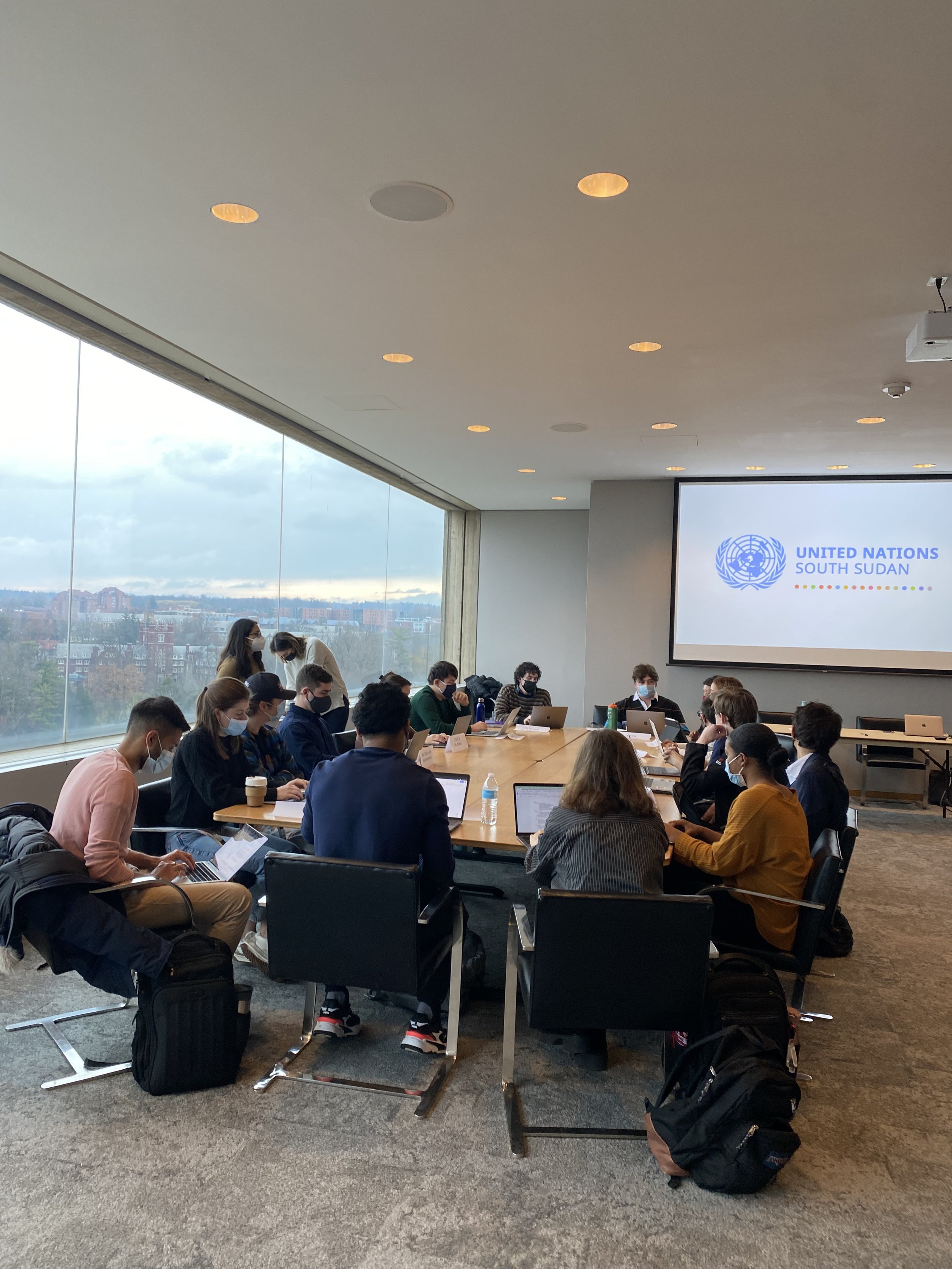
Undergraduate & Graduate Teaching
Courses Taught
-
GOVT 2264: Political Violence
This class is about political violence as a theoretical concept that can be explained scientifically. It explores what makes violence political, and the causes, dynamics, and effects political violence. The course provides a survey of classic and contemporary work on political violence by political scientists. It begins by exploring the history and conceptualization of political violence, including an assessment of how social scientists study political violence. It then dives into the literature on the causes, dynamics of, and consequences of civil conflict. The last part of the class looks at conflict management, investigates how political violence ends, and what happens afterwards.
-
GOVT 7274 Political Violence
This course surveys some of the literature on the nature, causes, dynamics, and consequences of political violence. It provides and overview of classic works on these subjects as well as new research. A major focus of the course is also on understanding the benefits and drawbacks of different methods to study these processes. This course is intended for graduate students who plan to specialize in the study of comparative politics or international relations.
-
GOVT 6109 Field Methods
This graduate seminar introduces students to methods currently used by social scientists to develop and test for observable implications of theoretically-derived arguments using data collected away from their home institutions. Topics covered include research design, ethnography and participant observation, interview methods, surveys and experiments in the context of field research, research ethics and human subjects, logistics of field research, grant-writing, safety protocols, and coming home. The course is designed primarily for students working on dissertation proposals or early stages of dissertation field research, but it may be helpful for students at other stages as well. A major goal is to encourage students to specify a field research strategy that links testable hypotheses with methods of data gathering and analysis before commencing field work. Students, therefore, will develop their own, individual research projects as the semester progresses, including writing actual grant proposals, IRB applications, or pre-analysis plans.
-
GOVT 4000: Politics of Policing
The murder of George Floyd by police officers in the US in 2020. The killing of civilians by the Nigerian Special Anti-Robbery Squad in 2020. The killing of civilian protestors by the Colombian Police Force in Cali in 2021. The violence used against protestors by the Hong Kong Police in 2019. These are just a handful of examples of excessive police violence around the world. Whether in the form of protest violence, gender-based violence, torture, extrajudicial killing, or daily abuse, police violence presents a challenge in every country of the world. Using a political science framework, this course explores police violence and the potential for police reform on a global scale,. Specifically, students will learn about how politics shapes the behavior of police officers and police institutions. While the course explores policing globally, it also looks at policing in locally, in Ithaca. As such, students will learn whether and how politics shapes policing at home and abroad.
-
GOVT 1101: Gender, Violence, and the State
One of the major questions in the social sciences is why people engage in violence, whether inter-personal violence, such as domestic violence or rape, state repression, or full-scale war. In this class, we will use the analytical tool of gender to understand violence. Although gender is one analytical framework out of many for understanding violence, the focus in this class is to understand the role gender plays in our everyday lives, and then to apply gender as a tool to better understand why people engage in violence. Students will hone their writing skills as they explore gender as an analytic framework.
-
GOVT 4000: Gender and International Politics
This course examines the way that politics shapes gender relations, with a particular focus on women’s rights and inclusion in society and politics. Gender equality has been at the heart of human rights and development efforts over the past half century. International institutions and actors have created legal and normative frameworks to address the ongoing marginalization of women and girls around the world, including the 1979 Convention on the Elimination of Discrimination Against Women (CEDAW), the 1995 Beijing Platform of Action, and the UN Women, Peace, and Security framework. Yet despite these frameworks, gender-based violations and inequalities continue to exist around the globe with alarming pervasiveness. Indeed, some scholars and policymakers argue that we are witnessing a period of backsliding on gender equality. Drawing on political science social science academic research, this class will introduce you to the concepts of gender equality and women’s status and will investigate the politics behind increases in gender equality/women’s rights and the factors that might contribute to backsliding.
Active Learning: As a part of an Active Learning Grant, I will incorporate more active learning modules into my courses, test the effectiveness of active learning, and integrate generative AI into my classroom.



